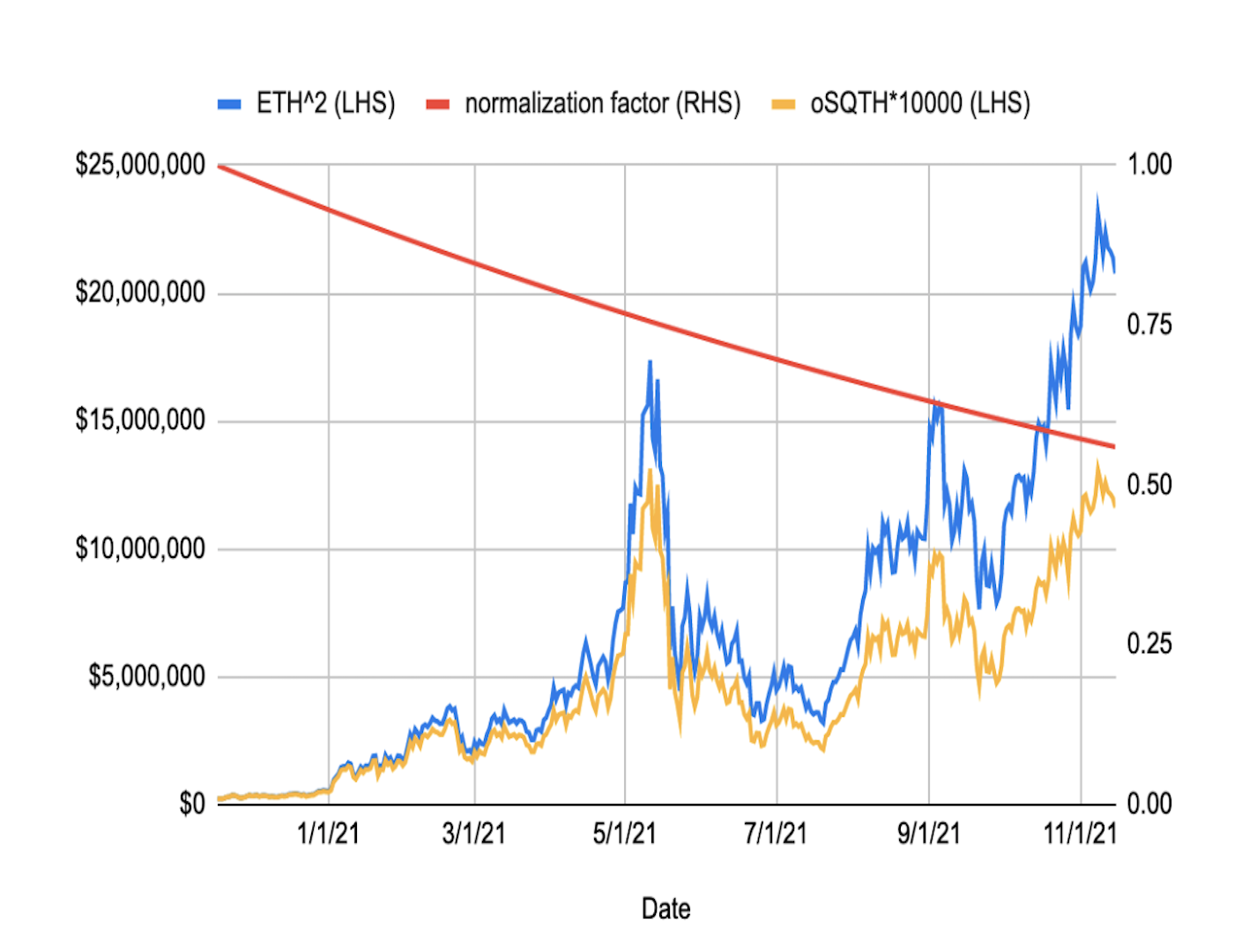Is a 10-fold price return not doing it for you? How about 90x?
The latest structured-finance alchemy from the crypto industry allows traders to get exponential returns on the price of ether (ETH), already one of the world's most volatile assets.
Last week, the decentralized options protocol Opyn launched an ether derivative contract linked to a new index called Squeeth – a word play on “squared-ether.” The index tracks ether’s price change, raised to the power of two. It takes leverage to the exponential degree.
There's even a token for that: Traders can take bullish exposure to the Squeeth index by purchasing oSQTH on the decentralized cryptocurrency exchange Uniswap. The token, which is designed to track the index, is configured for the Ethereum blockchain under the widely used ERC-20 standard.
The basic purpose of the new tool is to give traders exposure similar to the highly leveraged bets they could get from trading options, but without the need to set strike prices or determine contract expiration dates, according to a Jan. 9 blog post by Wade Prospere, head of marketing and community at Opyn.
Squeeth turns the options trade into a perpetual contract and can be used as a hedge, Prospere told CoinDesk. On the long side – betting on price upside – the trade offers leverage without liquidations. Traders who take the short side – betting on prices to stay range-bound – can collect premium yield, he said.
“The ideal market condition to hold Squeeth is when a trader has conviction in the upward price movement of ETH in the short- to mid-term,” Wade Prospere, head of marketing and community at Opyn, told CoinDesk.
One contrast is with the ETH-2X flexible leverage index – a structure product offering 2X leverage where traders simply get double the underlying returns; think exponential versus geometric; a two-times or "2x" multiplier turns a triple into a sextuple; but a "squared" return turns a triple into a nonuple.
Holders of Squeeth will make more when ETH goes up and lose less when ETH goes down.
Say a trader purchases $1,000 worth of the Squeeth tokens. If the price of ether triples from $3,000 to $9,000, the Squeeth would go up triple-squared, or 9-fold – to $9,000 in this example. On the contrary, if ether halves to $1,500, Squeeth will see a less-than-linear decline, as represented by the curved payoff line below:

Blockchain security researcher Mudit Gupta said the product is "great for short-term trades, as it offers higher upside and lower downside."
According to Joseph Clark, a mechanism designer at Opyn, Squeeth can also be used as hedge along with ether derivatives on the decentralized exchange Uniswap V3.
Shorts prone to liquidations
While the constant in-kind funding collected from long positions ensures there are no liquidations due to margin calls, traders with short positions are still liable to having their bets forcibly closed out.
Traders shorting Squeeth are effectively short the oSQTH token and long ether collateral. That’s because they first need to deposit ether on Opyn’s platform as collateral – in order to mint the oSQTH tokens before shorting them on Uniswap. These traders earn a funding rate for taking on this position, paid by Squeeth holders.
If ether’s price suddenly were to jump, the margin call required to keep the squared short position fully collateralized would exceed any increase in the value of the ether collateral – leading to liquidation or forced closure of the short position by the protocol.
"Large daily moves in the ETH price become much larger when they are squared," Prospere said. "If the ETH price is increasing, users could need to top up collateral to avoid being liquidated."
At the recommended collateralization ratio of 200%, the ideal market condition to short Squeeth is when traders are convinced that the market is overpricing future price volatility – in other words, when the traders see fewer wild price swings ahead than in the prevailing views of the market.
So selling Squeeth is a bet on lower volatility. Of course, that doesn't mean it won't be volatile trading Squeeth itself.
 coindesk.com
coindesk.com